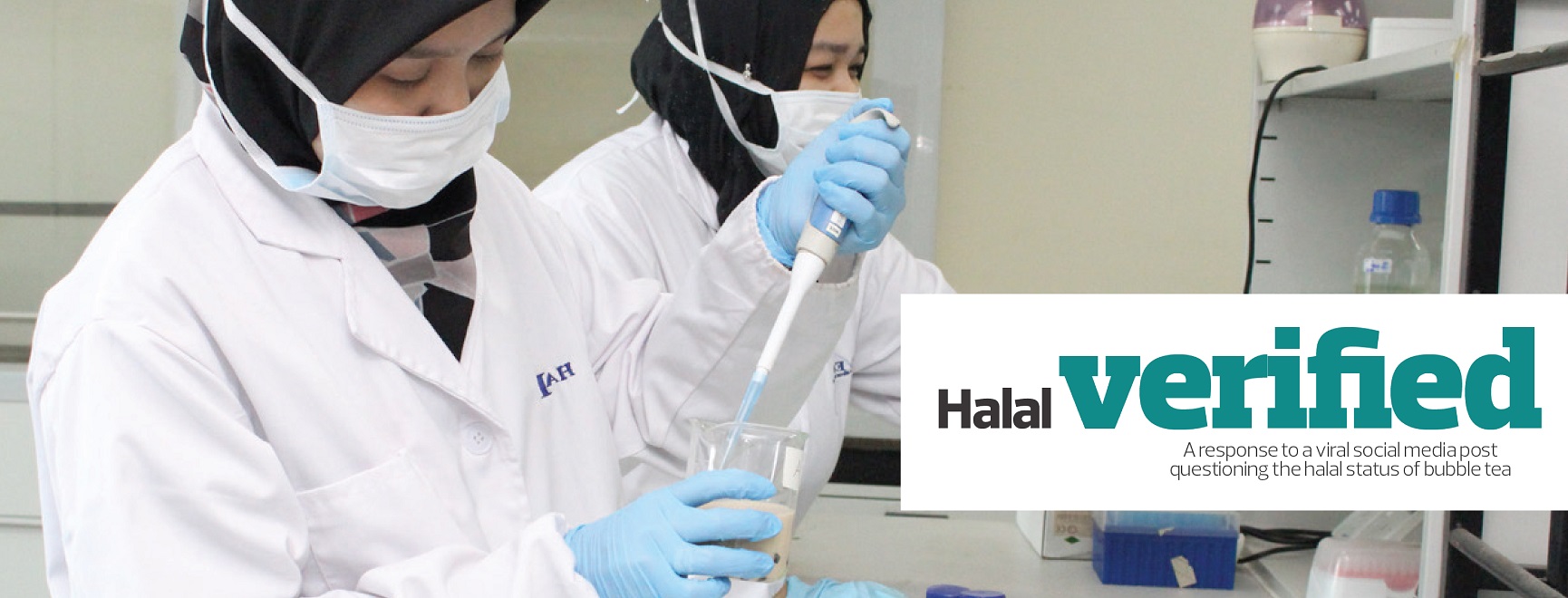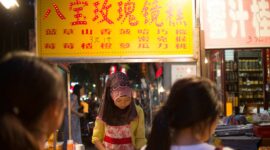02 Jul
2021
Halal Verified but not certified
A response to a viral social media post questioning the halal status of bubble tea |
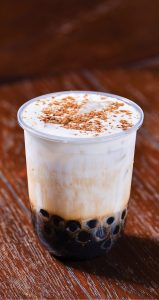 Malaysians are really into food trends. Not too long ago, we were astounded by the chocolate and cheese covered banana fritters. Now; the delicious, yet scandalous ‘boba’. As we know, the bubble tea frenzy has taken over the country starting from earlier this year. The famously varied beverages which are served with a hefty amount of tapioca balls – also referred to as ‘bubbles’ or ‘boba’ mostly sold by Malaysian Chinese have become an online phenomenon. There’s simply no escaping at least a photo of a plastic lid cup with what seems to be containing a gooey brown sugar with fresh milk or milk tea every time we’re on Facebook or Instagram.
Malaysians are really into food trends. Not too long ago, we were astounded by the chocolate and cheese covered banana fritters. Now; the delicious, yet scandalous ‘boba’. As we know, the bubble tea frenzy has taken over the country starting from earlier this year. The famously varied beverages which are served with a hefty amount of tapioca balls – also referred to as ‘bubbles’ or ‘boba’ mostly sold by Malaysian Chinese have become an online phenomenon. There’s simply no escaping at least a photo of a plastic lid cup with what seems to be containing a gooey brown sugar with fresh milk or milk tea every time we’re on Facebook or Instagram.
Bubble tea has never been a new thing in Malaysia. However, the beverage have went through a resurgence recently after multiple Taiwanese brands started to become popular and have rebranded the beverage to something called ‘boba milk’.
The viral post
There was a recent social media post that had raised an issue with the bubble tea. The social media post had questioned the halal status of the sugary drinks, as it has attracted many Muslim consumers in the country as well. Our exclusive interview with Ruzanna Zainal, Quality Manager of the Global Haltec Sdn Bhd will provide you the inside scoop into the matter.
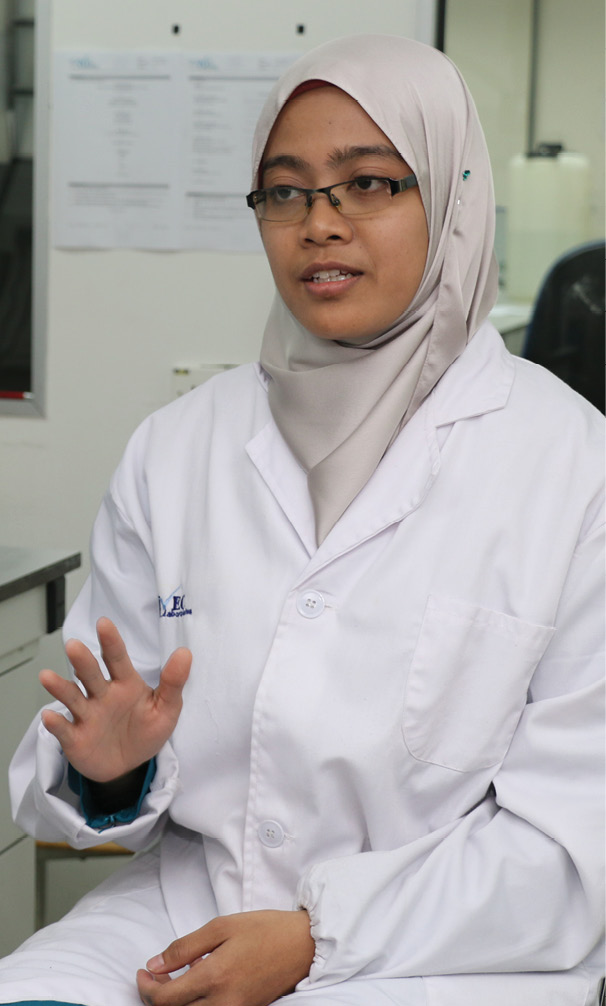 Putting things into perspective
Putting things into perspective
“When it comes to food, we usually look into the critical ingredients,” says Ruzanna. “Not all products contain critical ingredients, for example; a plant based product would not be considered as critical as it does not have any animal traces.” According to Ruzanna, while the ‘bubbles’ are tapioca based, it is common to find traces of gelatine to glaze the bubbles.
“In case there’s a gelatine layer in the product, we need to make sure that the gelatine was not made using ingredients that are not halal. The process will take us back to the manufacturer and we need to correctly identify the methods of mixing and preparing the bubbles. We will make sure that they do not contain any critical ingredients that are highlighted by the JAKIM on their website.”
“Once we are sure of the method used by the manufacturers, we’ll move on to detection. For example, after testing the ingredients for gelatine (if any), we would look for the signs of contamination and ensure that the product we are testing does not come in contact with porcine (pork-based ingredient) at any given time during production and serving,” Ruzanna continues
Scientifically tested for porcine TRACES
Four samples were taken randomly from the market and were tested by Global Haltec’s own halal testing facility, Halvec Laboratories. The testing process was led by Nurul Atiqah Sa’adon. “We ran two tests for the bubble, a DNA test and the enzyme-linked immunosorbent assay (ELISA ) test. For the DNA test, we’re looking more on the contamination side while the ELISA test to determine the porcine trace within the raw ingredients and the processes,” says Nurul.
“For the DNA test, we have to first homogenise the samples. This is to separate the cells since we’re looking for the pure DNA . This process is important as the protein, starch, sugar and colouring can act as the inhibitor when determining the DNA . With the pure DNA , we are able to detect the smallest trace of porcine; which is around 0.0002 nanograms,” she says. “We’ll use the PCR machine and compare the result with a specific sequence. If the samples match, that means that the sample is contaminated with porcine DNA .”
“Porcine detection via ELISA is used to determine the presence or porcine trace in protein form. This method has been verified and validated specifically for protein based analysis and it is used to find any trace of porcine inside the protein. The process targets a specific protein to determine the trace of porcine in the samples we have,” she continues.
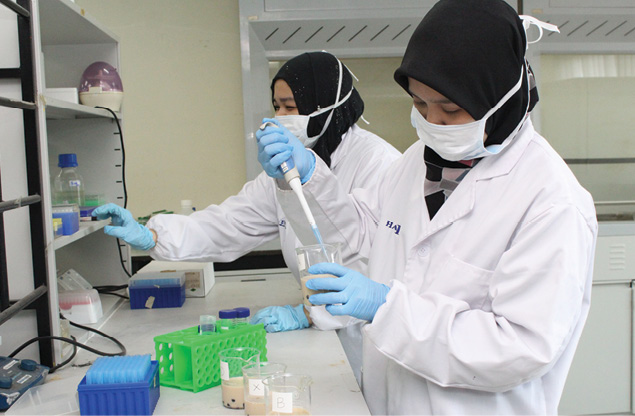
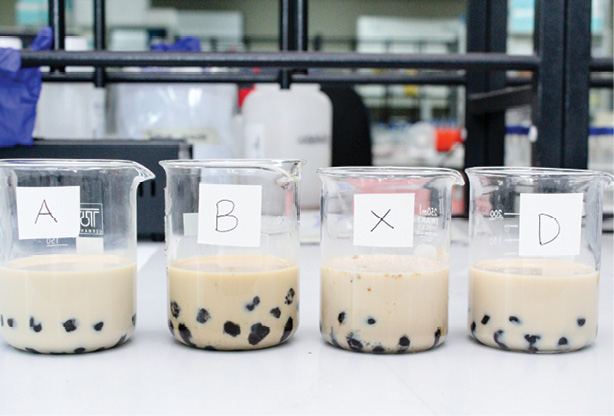
The testing process, where the researchers look for any traces of porcine DNA – either within the ingredients or as a contaminant.
Sealing the lid on the issue
Good news for the bubble tea and boba milk fans. according to nurul, the four samples (current popular brands in Malaysia without halal certification) that were tested were found to be free from pork-based ingredients and contamination.
“after testing the samples that were brought to us, we have found the result to be negative (no procine detected). all the products we have tested are safe for consumption in terms of their ingredients. simply put, no pork-based ingredients were used in the making of the boba. We came to this conclusion when we could not fi nd a trace of pork from said ingredient,” nurul declares.
in a nutshell, the four main brands popular among Malaysians currently have been tested, and are now halal-verified.
However, halal-verifi ed does not make it halal certified. “Halal verification and halal certifications are two different things. To be certified halal, the company must go through the right process as mandated by JaKiM. a title that we cannot grand as the halal spectrum covers more than just the ingredients used. Our specialty is to determine the ingredients with clinically proven techniques to find traces of porcine Dna by using our own technologies and collective knowledge,” says Ruzanna. she then says “since it is halal-verified and not certified, we implore the users to use their own discretion when considering joining in the bubble craze. We can’t disclose the brands that we sample, however; we can say all four tested brands have ‘gone viral’ at one point or another.”
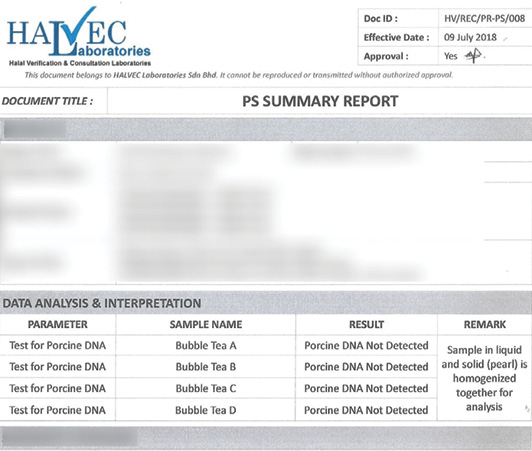
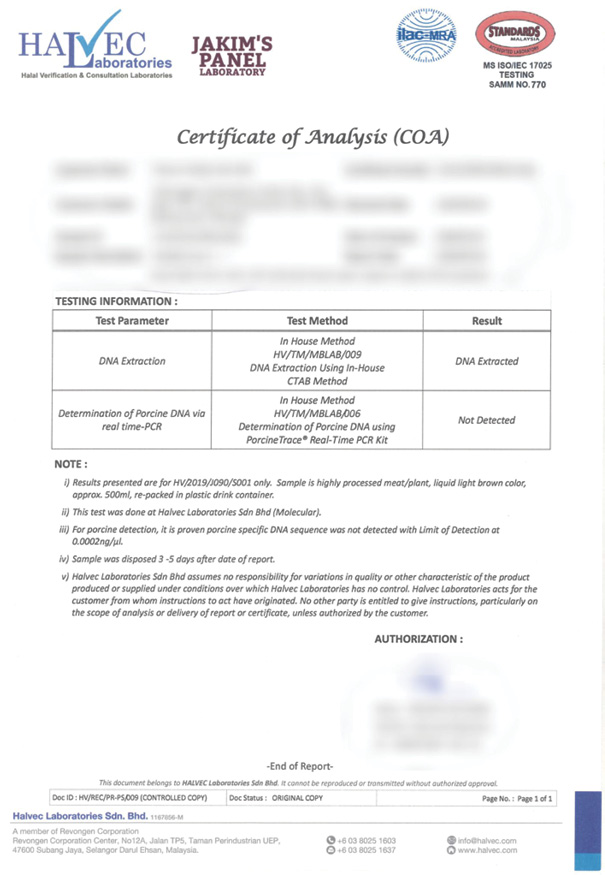
The test results by Halvec Laboratories, showing the negative results of porcine DNA in the drinks which have made them halal-verified.
“When it comes to food, we usually look into the critical ingredients,” says Ruzanna. “Not all products contain critical ingredients, for example; a plant based product would not be considered as critical as it does not have any animal traces.” – Ruzanna Zainal
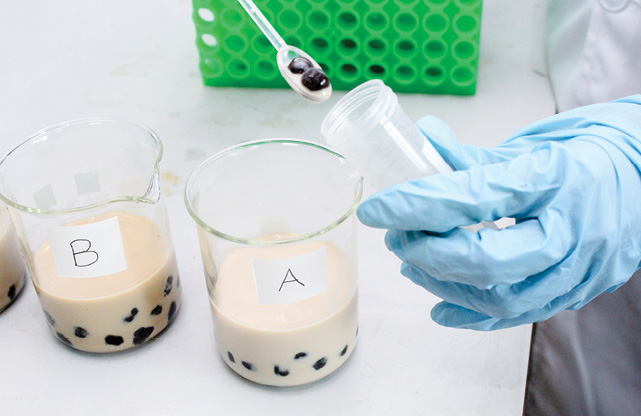
Spilling The ‘Tea’
While the bubble from the four brands are deemed halal for consumption, without the certification; the halal status will always come into question for Muslim consumers. We still need to remember that the halal status can be compromised when we dwell in doubt, according to islamic teachings. as much as we must follow the halal regulations, we need to fi nd the balance where we can make our own decisions. I honestly think that even though it is important to question the halal status of our food, it is also important to not blow things out of proportion.

